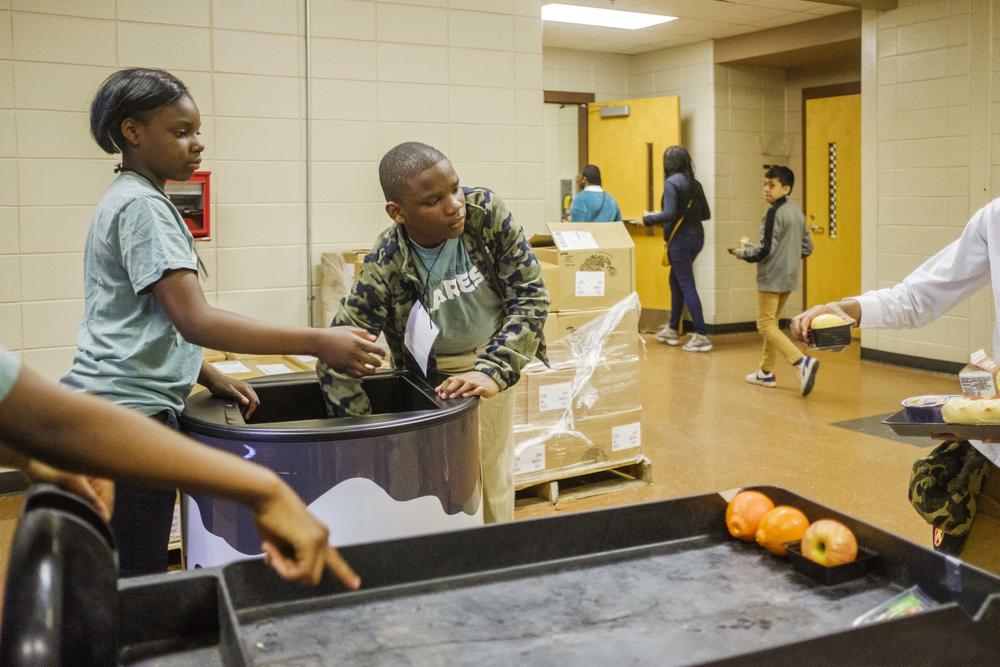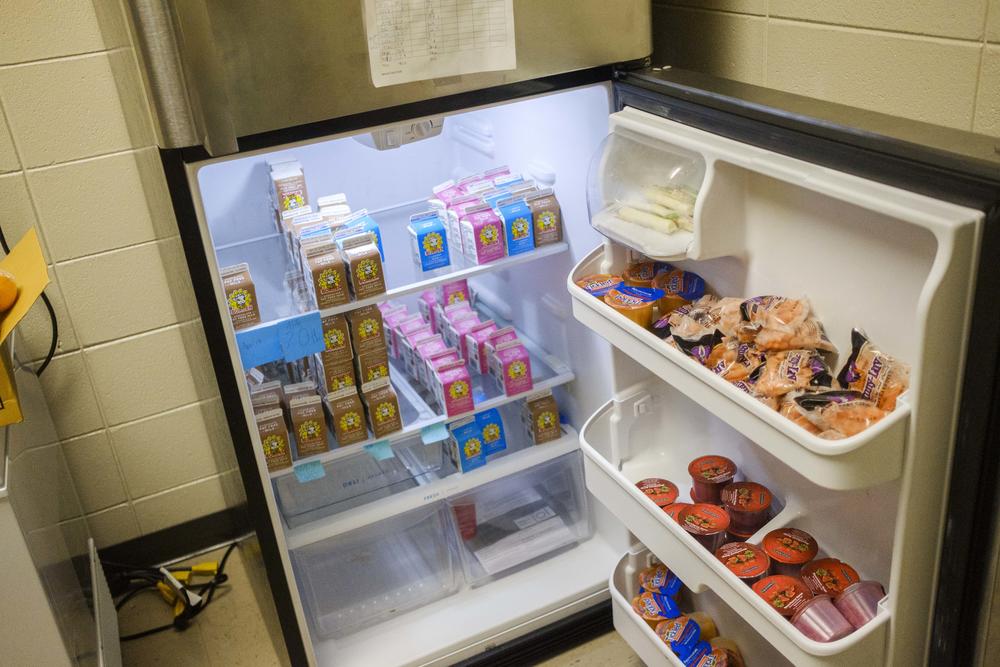
Caption
Ballard Hudson Middle School students Jalexia Maloy, left, and Jayden Parker, center, collect food during their lunch period in their roles as volunteer workers in the Helping Hands Ending Hunger program.
Credit: Grant Blankenship/GPB


